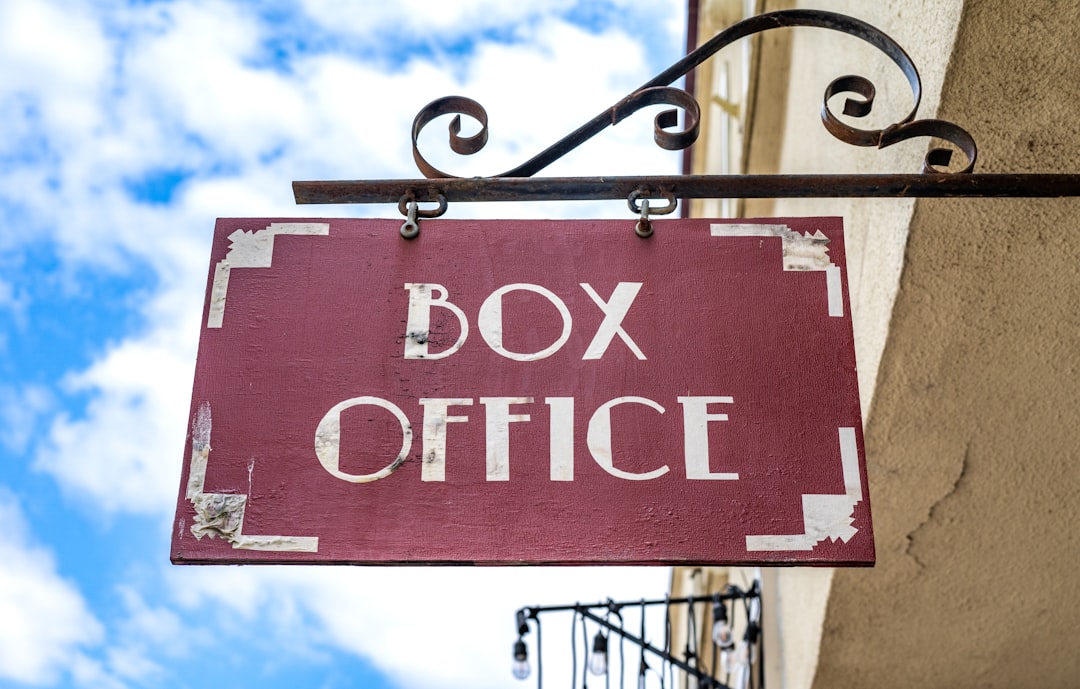As I reflect on the cinematic landscape of 2016, it becomes evident that the superhero genre was not just a dominant force; it was a battleground of epic proportions. The year saw a remarkable influx of superhero films, each vying for box office supremacy while simultaneously attempting to carve out a unique identity in a crowded marketplace. With franchises like Marvel and DC leading the charge, audiences were treated to a plethora of superhero narratives that ranged from the light-hearted to the dark and brooding.
This year marked a pivotal moment in the evolution of superhero films, as they began to explore deeper themes and more complex characters, all while delivering the action-packed sequences that fans had come to expect. The competition was fierce, with each film not only aiming for financial success but also striving for critical recognition. As I delved into the box office numbers and reviews, it became clear that 2016 was a year of contrasts.
Some films soared to unprecedented heights in terms of revenue, while others garnered acclaim from critics and audiences alike for their storytelling and character development. This article will explore the financial winners, critical darlings, and the intricate relationship between box office success and critical acclaim, ultimately shedding light on the impact of superhero films on the industry and their reception among fans.
While box office numbers are often the most visible indicators of success, 2016 also produced several superhero films that garnered critical acclaim and resonated with audiences on a deeper level. “Doctor Strange,” directed by Scott Derrickson, was one such film that received praise for its stunning visual effects and innovative storytelling. As I watched Benedict Cumberbatch embody the titular character, I was struck by how the film explored themes of redemption and self-discovery within the framework of a superhero origin story.
Critics lauded its ability to blend mysticism with action, making it a standout entry in the Marvel Cinematic Universe. Another film that captured critical attention was “Batman v Superman: Dawn of Justice.” Despite its mixed reviews, I found it intriguing how this film attempted to tackle complex themes such as power, responsibility, and morality. While some critics were divided on its execution, many acknowledged its ambition in trying to set up an expansive universe for DC Comics.
The juxtaposition between financial success and critical acclaim in 2016’s superhero films is a fascinating aspect of this cinematic landscape. While “Captain America: Civil War” dominated the box office, it also received positive reviews from critics who praised its character development and thematic depth. In contrast, “Batman v Superman: Dawn of Justice” struggled at the box office despite its ambitious narrative and star-studded cast.
This dichotomy raises important questions about what audiences truly value in superhero films—are they drawn primarily by spectacle and box office numbers, or do they seek meaningful storytelling and character exploration? As I analyzed these trends, I realized that both financial success and critical acclaim are essential components of a film’s legacy. A movie like “Deadpool,” which achieved remarkable box office success while also being celebrated by critics for its originality, exemplifies how a film can strike a balance between commercial viability and artistic merit.
On the other hand, films that may not have performed as well financially can still leave a lasting impact on the genre and influence future projects. This ongoing battle between financial success and critical recognition continues to shape the superhero landscape as filmmakers strive to create works that resonate with both audiences and critics alike.
Impact of Superhero Films on the Film Industry
The impact of superhero films on the broader film industry cannot be overstated. As I observed the trends in 2016, it became clear that these films have not only redefined box office expectations but have also influenced filmmaking practices across genres. The success of superhero franchises has led studios to invest heavily in shared universes, creating interconnected narratives that encourage audience engagement over multiple films.
This trend has transformed how stories are told in Hollywood, with studios increasingly looking to replicate the formula that has proven successful for Marvel and DC. Moreover, superhero films have opened doors for diverse storytelling and representation within the industry. As I watched various films tackle themes of identity, morality, and social justice, I recognized that these narratives resonate with audiences on a personal level.
The rise of female-led superhero films like “Wonder Woman” has further demonstrated that there is a demand for diverse perspectives within this genre. The impact of these films extends beyond mere entertainment; they have become cultural touchstones that reflect societal values and aspirations.
When it comes to audience reception, 2016’s superhero films showcased a fascinating divide between fan favorites and critical consensus. While critics may have lauded certain films for their artistic merit or innovative storytelling, audience reactions often diverged significantly based on personal preferences and expectations. For instance, “Deadpool” emerged as a fan favorite due to its irreverent humor and self-aware approach to the superhero genre, even if some critics were less enthusiastic about its narrative structure.
Conversely, films like “Batman v Superman: Dawn of Justice” received mixed reviews from critics but still attracted a dedicated fanbase eager to see their beloved characters on screen together. This phenomenon highlights how audience engagement can sometimes transcend critical opinion, leading to passionate discussions among fans about what makes a successful superhero film. As I navigated through various forums and social media platforms, it became evident that fans often prioritize emotional connections with characters over critical analysis, further complicating the relationship between audience reception and critical consensus.
Future of Superhero Films: Trends and Predictions
Looking ahead, I find myself intrigued by the future trajectory of superhero films in light of 2016’s developments. The trends established during this year suggest that filmmakers will continue to push boundaries in terms of storytelling and representation. With audiences increasingly demanding diverse narratives that reflect their experiences, I anticipate that we will see more films exploring underrepresented characters and themes within the superhero genre.
The success of series like “The Falcon and The Winter Soldier” on Disney+ indicates that audiences are eager for deeper explorations of characters within episodic formats. This shift could lead to more nuanced storytelling opportunities that allow filmmakers to delve into character arcs over extended periods rather than condensing them into two-hour films.
The Evolution of Superhero Films in 2016

In conclusion, 2016 was a watershed moment for superhero films that showcased both financial triumphs and critical achievements within an ever-evolving genre. As I reflect on this year’s offerings, it becomes clear that these films are no longer just about capes and powers; they are complex narratives that engage with contemporary issues while entertaining audiences worldwide. The box office battles between franchises highlighted not only the commercial viability of superhero stories but also their potential for artistic exploration.
As we move forward into an era where superhero films continue to dominate popular culture, I am excited to see how filmmakers will respond to audience demands for innovation and representation. The evolution witnessed in 2016 serves as both a foundation and an inspiration for future projects within this dynamic genre. Ultimately, I believe that superhero films will continue to captivate audiences while challenging conventions—an exhilarating journey that I eagerly anticipate as a fan and observer of this remarkable cinematic phenomenon.
If you’re a fan of monster movies like Godzilla, you may be interested in exploring the deeper themes and symbolism behind these iconic creatures. Check out this article that delves into how Godzilla represents both anarchism and capitalism in modern society. It’s a fascinating look at the cultural significance of these giant monsters and how they reflect our own societal values and fears.
FAQs
What superhero films were released in 2016?
In 2016, several superhero films were released, including “Deadpool,” “Batman v Superman: Dawn of Justice,” “Captain America: Civil War,” “X-Men: Apocalypse,” and “Suicide Squad.”
Which superhero films were the financial winners in 2016?
The financial winners among the superhero films released in 2016 were “Deadpool,” “Captain America: Civil War,” and “Suicide Squad.” These films performed exceptionally well at the box office, earning significant profits.
Which superhero films were the critical darlings in 2016?
The critical darlings among the superhero films released in 2016 were “Deadpool” and “Captain America: Civil War.” These films received widespread acclaim from critics and audiences alike for their storytelling, performances, and visual effects.
How did the financial winners compare to the critical darlings in 2016?
While “Deadpool” and “Captain America: Civil War” were both financial winners and critical darlings, “Suicide Squad” was a financial success but received mixed reviews from critics. “Batman v Superman: Dawn of Justice” and “X-Men: Apocalypse” also performed well financially but received more mixed reviews from critics and audiences.
What factors contributed to the success of the financial winners in 2016?
The success of the financial winners in 2016 can be attributed to factors such as strong marketing campaigns, fan anticipation, positive word-of-mouth, and the appeal of the characters and storylines. Additionally, the unique and unconventional approach of “Deadpool” contributed to its box office success.
What factors contributed to the critical acclaim of the darlings in 2016?
The critical acclaim of the darlings in 2016 can be attributed to factors such as compelling storytelling, well-developed characters, impressive visual effects, and strong performances by the cast. Additionally, the ability of these films to resonate with both hardcore fans and casual moviegoers contributed to their critical success.
